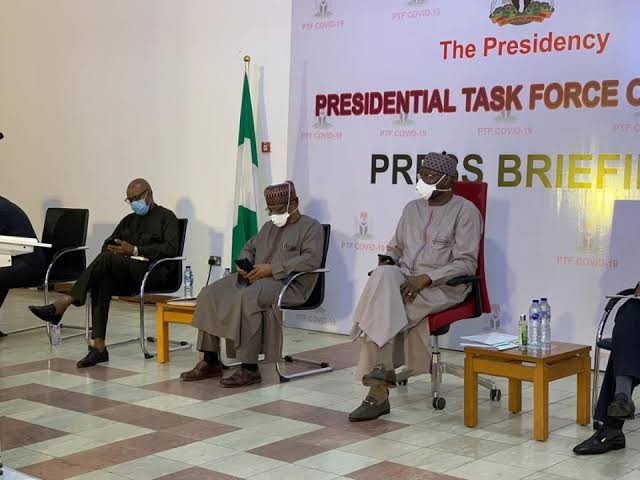The Federal Government of Nigeria has extended the gradual easing of the COVID-19 lockdown across the country by two more weeks.
Chairman of the Presidential Task Force (PTF) on COVID-19 and Secretary to the Government of the Federation, Boss Mustapha, announced this during the daily briefing of the task force team in Abuja today May 18.
Read also: ‘I Don’t Think Nigeria Has Coronavirus’- Pastor David Ibiyeomi
Mustapha said: “The reality is that in spite of the modest progress made, Nigeria is not yet ready for full opening of the economy and tough decisions have to be taken for the good of the greater majority. Any relaxation will only portend grave danger for our populace.?
Advisedly, the current phase of eased restriction will be maintained for another two weeks during which stricter enforcement and persuasion measures will be pursued.
The two weeks extension of phase one of the eased restriction is also to enable other segments of the economy to prepare adequately for compliance with the guidelines preparatory to an opening in the coming weeks.
For the presidential task force, we share your pains but our future is in the hands of every Nigerians and future decisions will depend greatly on our compliance.
Based on the recommendations of the Presidential task force, Mr. President has approved the following
1. The measures, exemptions, advisories as scopes of entities allowed to open under phase one of the ease lockdown shall be maintained across the Federation for another two weeks effective from Today 18th May until the 1st of June 2020.
2. Intensify efforts to tame, communicate, trace, identify and manage cases.
3. Elevating the level of community ownership of non-pharmaceutical interventions.
4.Mainatin the existing lockdown in Kano for another two weeks.
5. Imposition of precision lockdown in states or metropolitan and high burdened local governments that are reporting a rapidly increasing number of cases when the need arises. This will be complemented with the provisions of palliatives and continued re-evaluation of the impact of the interventions and
6. Aggressive scale-up of efforts to ensure that communities are informed, engaged, and participating in the response with enhanced public awareness in high-risk areas”

